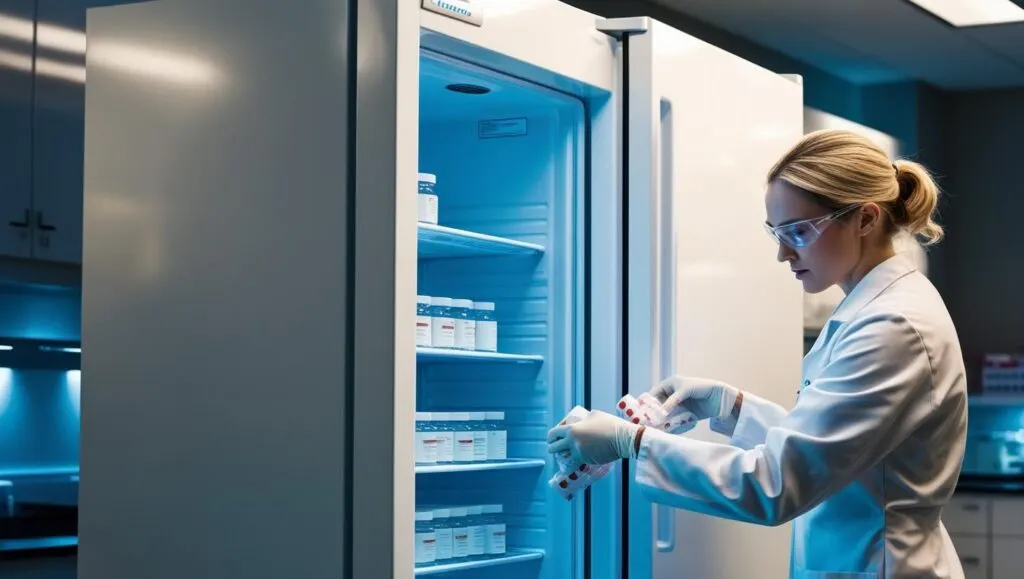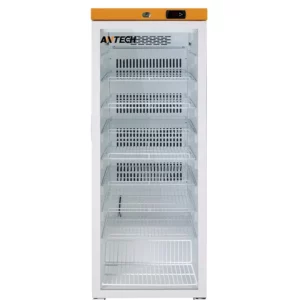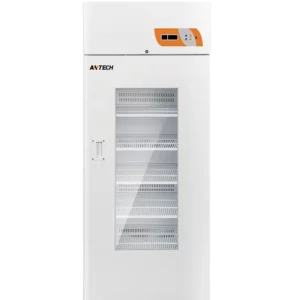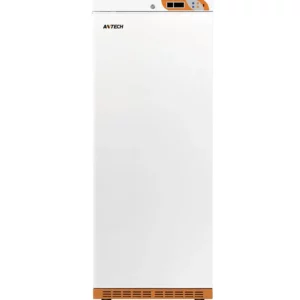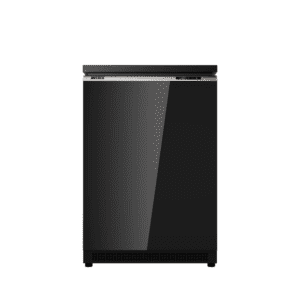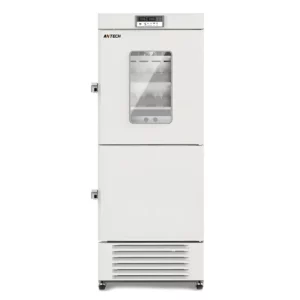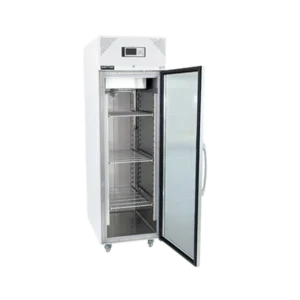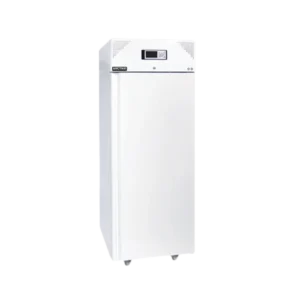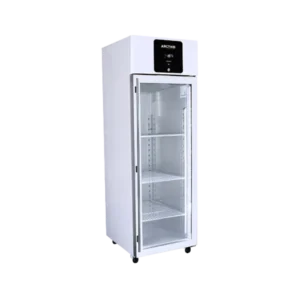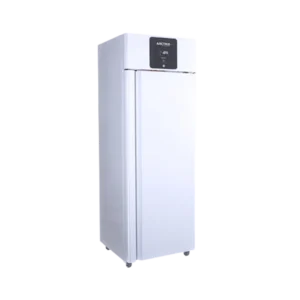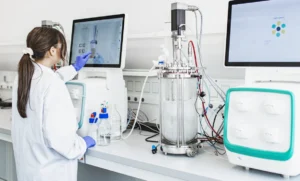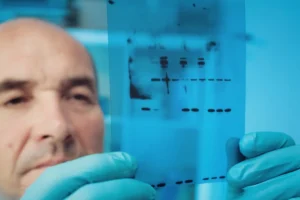A laboratory refrigerator is an essential piece of equipment for storing temperature-sensitive materials in research, pharmaceutical, and clinical environments. Choosing the right model ensures the safety, stability, and longevity of stored substances. This article explores the key factors to consider when selecting a laboratory refrigerator, helping you differentiate between models, features, and accessories for an informed decision.
1. Applications: Where Are Laboratory Refrigerators Used?
Designed for specialized storage, laboratory refrigerators are used in various industries:
- Pharmaceutical & Medical Storage – Found in pharmacies, hospitals, and clinics for vaccines, medicines, and biological samples requiring precise temperature control.
- Research & Scientific Laboratories – Store reagents, chemicals, and biological specimens in controlled conditions.
- Biotechnology & Life Sciences – Maintain the stability of enzymes, cell cultures, and diagnostic kits.
- Industrial & Food Testing – Preserve samples for food safety testing and quality control.
2. Temperature Control & Stability
Unlike domestic units, laboratory refrigerators require precise temperature regulation to maintain sample integrity. Key considerations include:
- Temperature Range – Pharmaceutical refrigerators usually maintain +2°C to +8°C, ideal for vaccines and medications. Some models offer broader ranges for specialized applications.
- Uniformity & Stability – Fan-assisted cooling ensures even temperatures throughout the unit.
- Temperature Recovery – Quick recovery after door openings prevents fluctuations that may compromise samples.
For a wide range of high-precision laboratory refrigerators, explore our Apex Scientific product selection.
3. Cooling Technology: Compressor vs. Absorption vs. Thermoelectric
The type of cooling technology impacts performance, maintenance, and energy efficiency:
- Compressor-Based Refrigerators – The most common, offering rapid cooling and stable temperatures.
- Absorption Cooling – Operates silently but may struggle with temperature uniformity.
- Thermoelectric Cooling – Energy-efficient but best suited for small or portable units.
4. Key Features to Look For
When selecting a laboratory refrigerator, consider:
- Digital Temperature Display & Alarms – Provides real-time monitoring and alerts for deviations.
- Data Logging & Connectivity – Advanced models offer USB, Wi-Fi, or cloud-based temperature tracking.
- Automatic Defrosting – Prevents ice buildup for consistent cooling. However this may not be suited for temperature sensitive products.
- Internal Shelving & Storage Flexibility – Adjustable shelves accommodate different sample sizes.
- Lockable Doors & Security Features – Essential for safeguarding pharmaceuticals and controlled substances.
5. Choosing the Right Size & Capacity
Selecting the correct size depends on storage needs:
- Undercounter Models – Ideal for small labs or pharmacies with limited space.
- Upright Models – Provide larger storage with adjustable shelving.
- Double Door Units – Suitable for bulk pharmaceutical storage.
6. Maintenance & Service Requirements
Proper maintenance ensures optimal performance and longevity:
- Regular Cleaning & Defrosting – Prevents ice buildup and ensures efficiency.
- Calibration & Temperature Validation – Ensures compliance with regulatory standards.
- Backup Power Solutions – Some models include battery backup alarms for uninterrupted monitoring.
Explore our selection of laboratory refrigerators designed for reliable long-term use.
7. Accessories & Optional Features
Enhance your laboratory refrigerator with:
- Glass vs. Solid Doors – Glass doors allow quick viewing, while solid doors provide better insulation.
- Additional Shelving & Storage Compartments – Customizable layouts for various sample sizes.
- Backup Battery for Alarm Systems – Keeps alerts active during power failures.
Final Thoughts: Selecting the Best Laboratory Refrigerator
Choosing the right laboratory refrigerator depends on application requirements, temperature stability, compliance, and energy efficiency. Whether you need a pharmaceutical refrigerator for vaccines or a general-purpose model for research samples, selecting the right specifications ensures reliability and compliance.
For expert guidance, explore our range of Antech Scientific laboratory refrigerators from Apex Scientific. We supply high-quality equipment across South Africa, ensuring the best solutions for laboratories and pharmaceutical storage.
Recommended products
Pharmacy Refrigerator – PharmaStore
Pharmacy Refrigerator – PharmaSafe
Laboratory Freezer -25°C
Low Temperature Freezer -60°C
Combined Refrigerator and Freezer 2-8°C and -40°C
Biomedical Refrigerators 1°C to 10°C – Glass Window
Biomedical Refrigerators 1°C to 10°C – Solid Door
Biomedical Refrigerators 2°C to 8°C – Glass Window
Biomedical Refrigerators 2°C to 8°C – Solid Door

